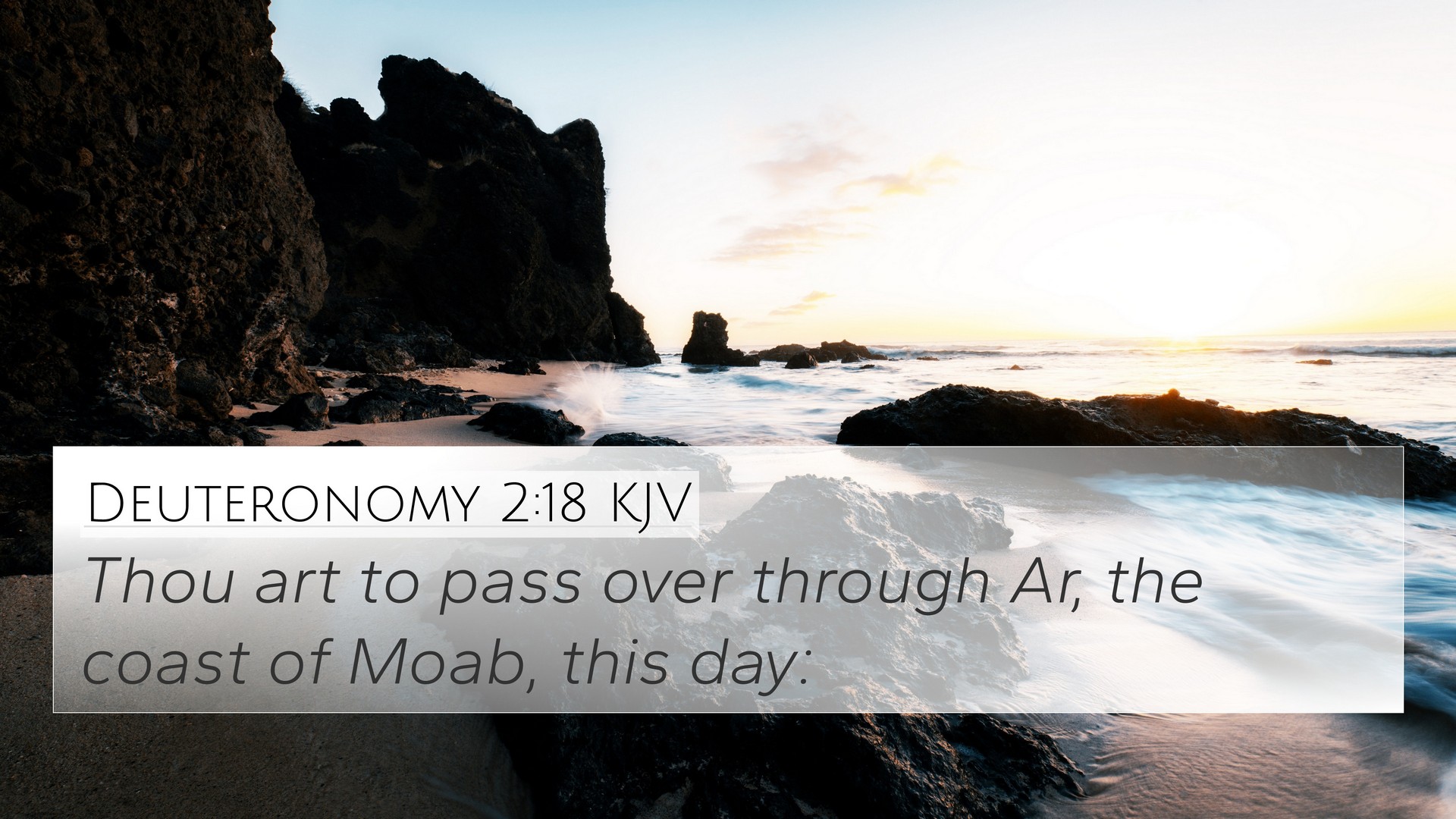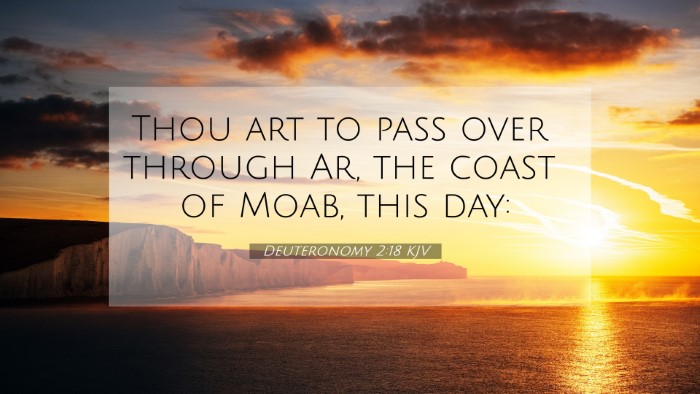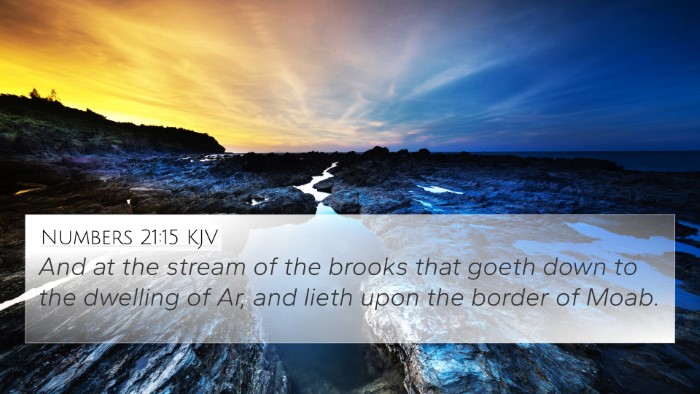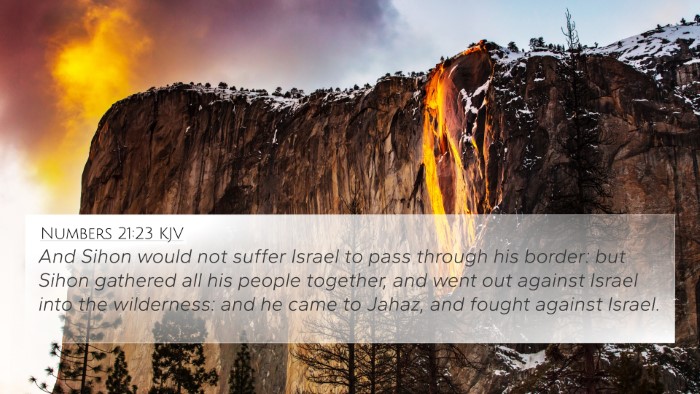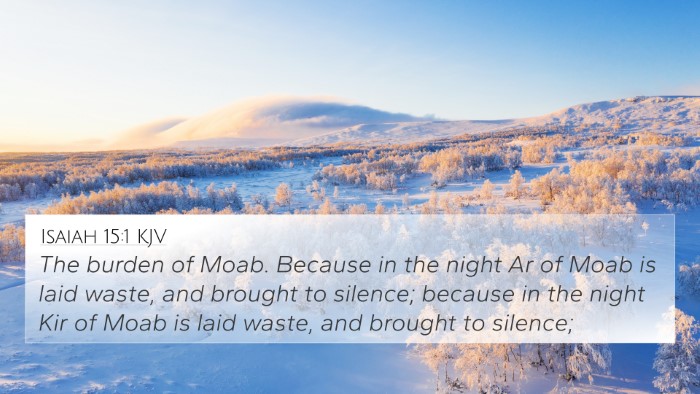Introduction
The verse Deuteronomy 2:18 marks a significant moment in the journey of the Israelites as they navigate through the wilderness towards the Promised Land. This command given to Moses serves not only as a geographical directive but also symbolically represents God's guidance and the inevitability of fulfilling His promises.
Contextual Background
This verse occurs within the larger narrative of the book of Deuteronomy, which reiterates the Law given to the Israelites as they prepare to enter Canaan. The chapter outlines various conquests and the divine instruction given to Israel to avoid conflict with certain nations, insinuating God's orchestration over the events of Israel's journey.
Insights from Public Domain Commentaries
- Matthew Henry: Henry emphasizes that this directive to pass through Moab indicates God’s sovereignty over the nations and reinforces His control in leading the Israelites towards their inheritance. It reflects the importance of obeying God’s commandments as a guide in their journey.
- Albert Barnes: Barnes provides a detailed analysis of the geopolitical landscape, noting that the instruction to traverse the borders of Moab highlights peaceable relations as a preferable course of action. It alludes to the promise of God regarding their future, as well as the necessity of respecting other nations as part of their journey.
- Adam Clarke: Clarke draws attention to the significance of the location, Ar, as a representation of the spiritual and physical boundaries the Israelites must respect. He illustrates how these instructions were meant to foster a sense of discipline and reverence for God’s provision and direction.
Theological Significance
Deuteronomy 2:18 serves as a reminder of the obedience required of believers as they navigate life's paths. Just as the Israelites were guided toward their destination, modern Christians are encouraged to seek God's guidance in all decisions, trusting in His perfect plan.
Cross-References
Several Bible verses resonate with the themes found in Deuteronomy 2:18, enriching its understanding through cross-references. Here are some notable connections:
- Numbers 21:13: References the journey past Ar, providing context to their route.
- Deuteronomy 2:9: Further instruction on not harassing Moab, showcasing God's protective guidance.
- Romans 15:4: Highlights the importance of learning from the Old Testament to understand God's faithfulness.
- Psalm 37:23: Illustrates God's guidance of the righteous, linking to the divine navigation experienced by Israel.
- Proverbs 3:6: Advises believers to acknowledge the Lord in all their ways, mirroring the Israelites' needed obedience.
- Joshua 1:3-5: God’s promise of land parallels the Israelites' journey in Deuteronomy.
- Isaiah 45:2: Depicts God preparing a way before His people, reinforcing trust in His direction.
Conclusion
Deuteronomy 2:18, while a simple geographical command, encapsulates a deeper message of obedience, divine guidance, and the importance of recognizing God’s hand in the journey of life. The connections between this verse and other scriptures deepen our understanding and offer reflections on God's unwavering presence and direction.
Exploring Cross-References in Scripture
As we delve into the meaning of Deuteronomy 2:18, the practice of cross-referencing Bible verses can provide profound insights. Here are some tools and methods to enhance your Bible study experience:
- Bible Concordance: Utilize a concordance to find related verses to aid your understanding.
- Bible Cross-Reference Guide: Reference guides can help find thematic connections across different books.
- Cross-Referencing Bible Study: Engage in studies that focus on parallel themes or narratives.
In addition, understanding how to utilize Biblical cross-references can greatly enrich your study methods. Knowledge of tools for cross-referencing and methods of linking scriptures will facilitate deeper exploration of your faith and enhance personal spiritual growth.
